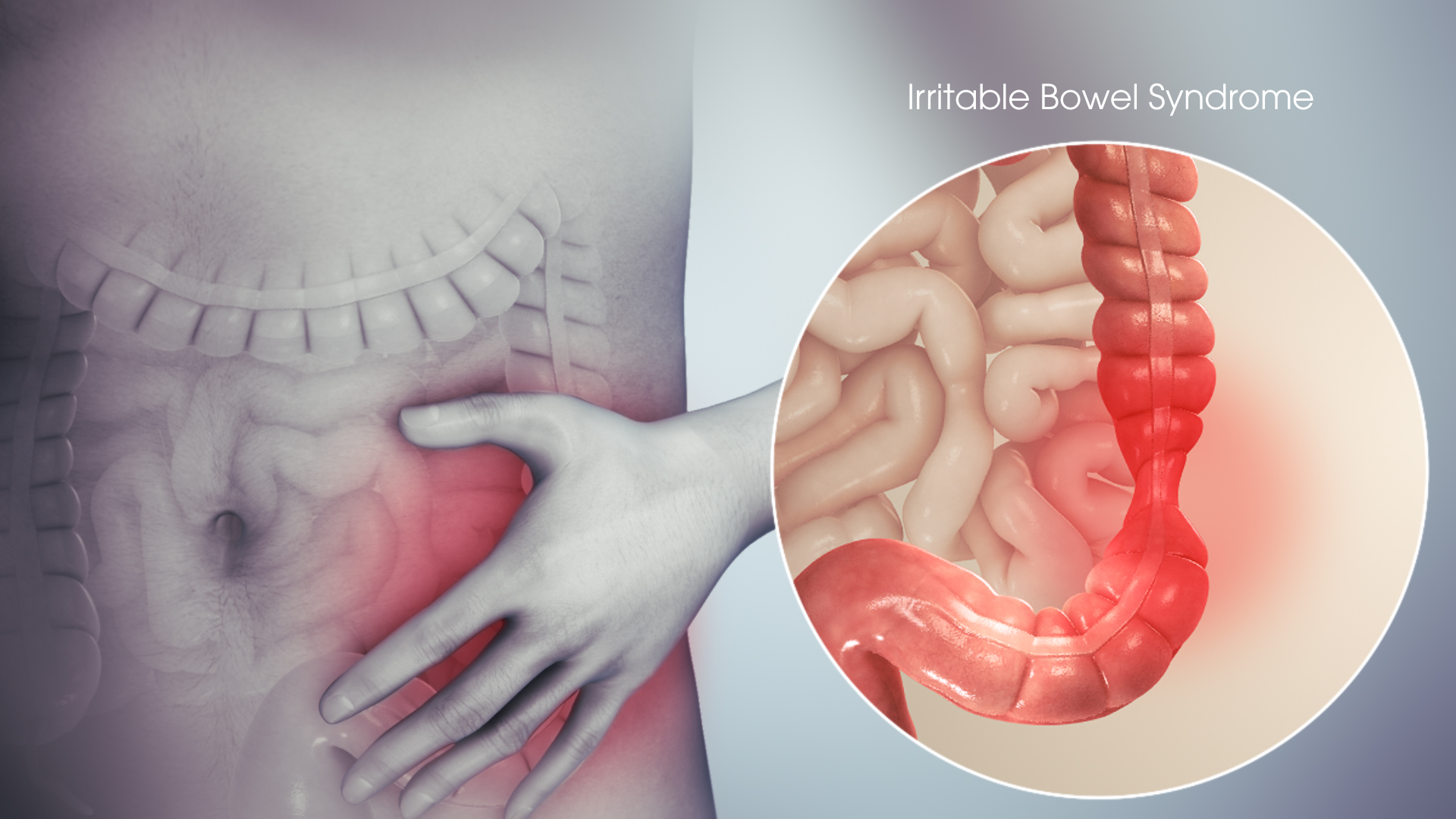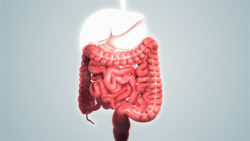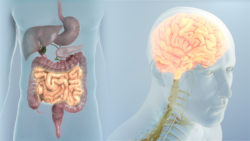
3D Medical Animation showing Irritable Bowel Syndrome
Symptoms
Like most diseases and disorders, symptoms may vary from person to person. The most common symptoms of IBS are diarrhea, cramping, abdominal pain, constipation, bloating and gas, mucus in the stool and weight loss. Disorders such as anxiety, depression and fatigue are also common among people suffering from IBS.Causes
The exact cause of IBS is not very clear. It is a combination of gut motility disorder, pain sensitivity, stomach infection and food sensitivity that could cause this gastrointestinal disorder. Onset of IBS is mostly triggered by an intestinal infection, hormonal changes or a stressful life event.Treatment
There is no cure for Irritable Bowel Syndrome but the symptoms can be controlled by avoiding the triggers. Certain foods as well as anxiety and stress are triggers for most people. By managing stress and making dietary changes and certain lifestyle changes like exercising regularly and getting enough sleep, a person suffering from IBS can easily manage to live a normal lifestyle. The dietary changes that are required in most case are, to increase high fibre foods, drinking plenty of fluids and avoiding foods that are high in causing gas. In case the symptoms of Ibs are ranging from moderate to severe medications such as laxatives, fiber supplements, anti-diarrheal medications, anti- depressants and pain medications may be suggested. IBS may be categorized as diarrhea predominant (IBS-D), constipation predominant (IBS-C) , alternating between constipation and diarrhea (IBS-M) or post infectious IBS. Only a small number of people with IBS have severe signs and symptoms which can be treated by medication and counselling. Most of the people can control their symptoms by managing their diet, lifestyle and stress. Disclaimer: The information in no way constitutes, or should be construed as medical advice. Nor is the above article an endorsement of any research findings discussed in the article an endorsement for any of the source publications.References:
- Irritable bowel syndrome Wikipedia
- How Is IBS Treated?
- 10 Irritable Bowel Syndrome (IBS) Symptoms, Diet, Triggers, Causes, Diet (Foods to Avoid), and Treatment

Diarrhea: Pathophysiology, Treatment, and Management
Diarrhea, as defined by WHO, is a condition of having at least three loose or liquid stools each day. It usually results in dehydration due to fluid loss. Read More..
Gluten Sensitivity: How it’s different from Celiac Disease
Gluten is a protein present in wheat, barley, and rye. Wheat is used as a common ingredient in almost all varieties of breads, pastas, and cereal.Many people suffer from digestive health issues caused by consuming gluten or wheat. Infact, wheat is one of the top 8 food allergens in the US. Read More..
Is Your Digestive System Making You Mentally Sick?
As the brain and the intestine are so close morphologically, they are also closely related and capable of influencing each other. Let’s find out how... Read More..








